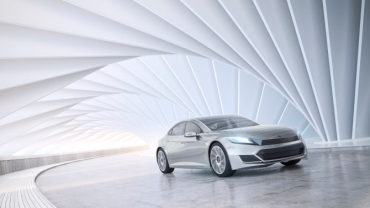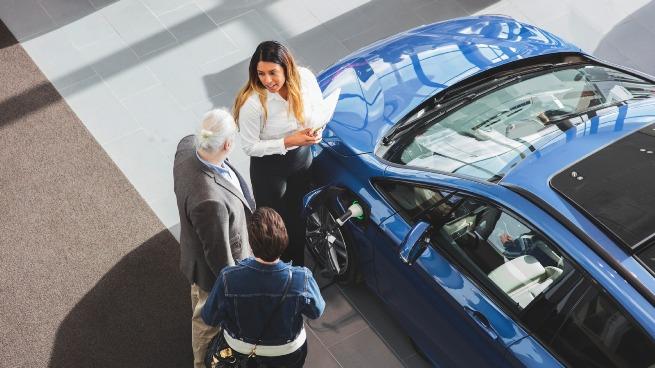
Automotive trends 2022: PwC’s 2022 Car Consumer and Dealer Survey
The auto industry is undergoing extensive change, but it’s not just about the electrification and connectedness of vehicles. New customer demands and behaviors could also alter decades-long relationships between original equipment manufacturers (OEMs) and auto dealerships, as well as the ways in which each sells and relates to customers.
To learn more, PwC carried out a survey of US car buyers and owners/general managers of new car dealerships, focusing on online and in-dealership buying experiences, electric vehicle (EV) adoption attitudes and emerging business models.

About 80% of car buyers prefer to go to dealers in person — to experience brands and products, test drive and complete transactions.
Most car dealers predict significantly more online sales in the future and they believe this change will have a positive impact on their profitability.
About 50% of car buyers considered an EV for their last car purchase…while just 5% ultimately purchased one.
- Online car purchasing is reaching a tipping point
- Most dealers are bullish on the shift to online sales
- Purchasing pain points
- Most consumers are open to EVs
- Range anxiety and charging concerns persist
- Single-family homeowners seem the best fit for EVs
- New direct and subscription business models
Online car purchasing is reaching a tipping point
Mainstream adoption of complete online vehicle purchasing is approaching a tipping point. Nearly half (46%) of car dealers surveyed report that at least 9% of recent vehicle sales took place entirely over the internet. Looking to 2030, dealers expect online sales to trend upward significantly; 64% of dealers said they believe completely online sales will comprise between 20% to 40% of all sales.
Most dealers are bullish on the shift to online sales
Nearly two-thirds of dealers believe that the shift to more online sales will have a positive effect on dealer profitability – with 27% saying that more online sales will have an “extremely positive impact” and 38% agreeing it would have a “somewhat positive impact.”
Purchasing pain points
The areas that dealers believe cause the most customer dissatisfaction include price negotiation (with 49% citing it as a top-three cause), negotiating financing (46%) and document signing (41%).
Most consumers are open to EVs
While just 5% of consumers said the car they ended up choosing for their last purchase was an EV (and 19% saying hybrids), 52% of all car buyers reported that they considered buying an EV.
Range anxiety and charging concerns persist
By far, the greatest sticking point that consumers have with owning an EV is battery range, with 40% naming it as their number-one concern. Other major concerns include cost or no at-home charging and a lack of public charging infrastructure. Additionally, charging time was an issue for non-EV adopters, just 25% of whom they were willing to wait more than 45 minutes to charge up.
Single-family homeowners seem the best fit for EVs
EV buyers expect to do the lion’s share of their charging at a single-family home (53%), while they expect to do just 13% at an apartment garage or parking lot.
New direct and subscription business models
As the auto industry races into the EV era, it also finds itself on the cusp of another ground-breaking era of change — how it sells. Seventy-one percent of dealers say subscriptions are a viable business model for their franchises. Yet two-thirds of dealers (67%) believe such a change in the OEM model would threaten their franchises. Consumers, however, seem to be warming to the idea, with 38% saying that they are “extremely” or “somewhat” likely to consider purchasing a subscription for their next vehicle.
Battery range is the most important reason consumers didn’t buy EVs, while performance was stated as the most important reason to buy one.
About 70% of car dealers say subscriptions are a viable franchise business model, while about 40% of consumers say they’ll consider a subscription for their next car.
While mainstreamed direct OEM-to-consumers could benefit consumers and carmakers, 67% of dealers say such a model would “threaten” their franchises.










